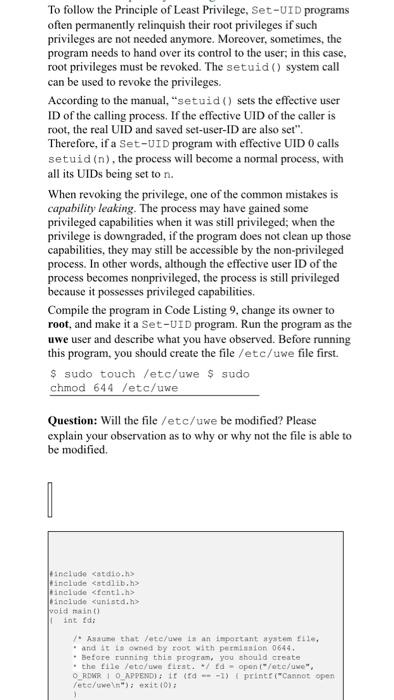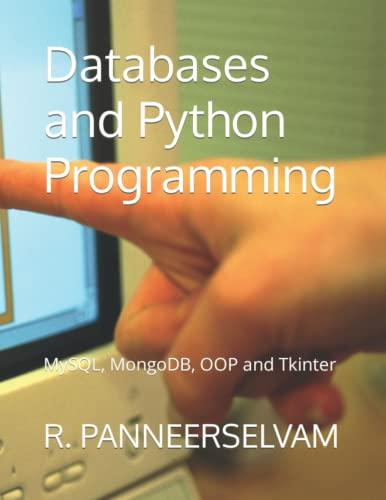Question
Note: No need to the run the code plz just give me answer of the question related to given scenrio answer should be 5 to
Note: No need to the run the code plz just give me answer of the question related to given scenrio answer should be 5 to 6 lines.thanks
Question: Will the file /etc/uwe be modified? Please explain your observation as to why or why not the file is able to be modified.
#include stdio.h>
#include stdlib.h> #include fcntl.h>
#include unistd.h>
void main()
{ int fd;
/* Assume that /etc/uwe is an important system file,
}
/* Simulate the tasks conducted by the program */ sleep(1);
/* After the task, the root privileges are no longer
setuid(getuid()); /* getuid() returns the real uid */
if (fork()) { /* In the parent process */ close (fd); exit(0);
} else { /* in the child process */
/* Now, assume that the child process is compromised,
}
}

Step by Step Solution
There are 3 Steps involved in it
Step: 1

Get Instant Access to Expert-Tailored Solutions
See step-by-step solutions with expert insights and AI powered tools for academic success
Step: 2

Step: 3

Ace Your Homework with AI
Get the answers you need in no time with our AI-driven, step-by-step assistance
Get Started


